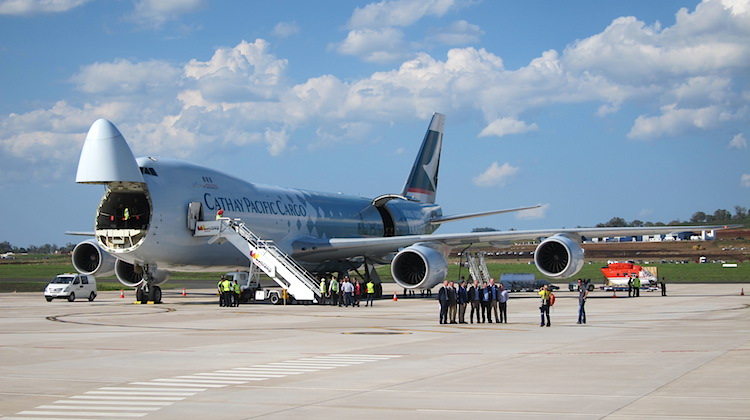
Air freight volumes fell for an eighth consecutive month in June amid business uncertainty and the ongoing trade tensions between China and the United Sates, according to the latest data from the International Air Transport Association (IATA).
Freight tonne kilometres (FTK) fell by 4.8 per cent in June with weakness broad-based across regions. Only Africa managed an increase in FTKs in June, IATA said in its monthly air freight market analysis report.
IATA had said previously that there were signs in recent months, after accounting for seasonal adjustments, of the freight market stablising, given a modest upward trend in the three months to May.
However, signs of a modest recovery have proved premature.
IATA said capacity growth remained subdued and the cargo load factor continued to fall as trade growth languished globally and the latest tariff increases in the US-China trade dispute that came into effect on June 1 compounded business uncertainty.
US goods to China were down 18 per cent in the first half of calendar 2019 compared with the same period last year, while goods from China to the US were down more than 12 per cent.
As a result IATA said its forecast for zero average growth in 2019 looked optimistic.
“The risk of further deterioration in global trade remains a key risk to the outlook for air cargo,” the IATA report said.
IATA chief executive and director general Alexandre de Juniac said: “Nobody wins a trade war. Borders that are open to trade spread sustained prosperity.”
“That’s what our political leaders must focus on.”
In June, freight demand in the Asia Pacific region (35 per cent of the world’s market), contracted by 5.4 per cent year-on-year.
The weak cargo sentiment was reflected in the recent financial results from two of the region’s biggest carriers Cathay Pacific and Singapore Airlines.
Cathay Pacific said its cargo operations suffered an 11.4 per cent decline in revenue during the first half of calendar 2019, while Singapore Airlines said cargo yield and load factor fell 4.2 per cent and 2.7 percentage points, respectively, in the three months to June 30 2019.
The biggest reduction in FTKs was the Middle East, where volumes slipped seven per cent. In North America, FTK’s were 4.6 per cent lower.
IATA said although the US-China trade was an important factor in the reduced freight demand for Asia Pacific airlines it was not solely responsible for the fall.
Within the Asia market it said FTKs had decreased more than 10 per cent over the past year, while air freight capacity increased 1.8 per cent over the same period.
North American FTKs to Asia were down five per cent.
African carriers were the ones reporting growth in June with FTKs up 3.8 per cent compared with the same period a year earlier. Capacity, measured by available freight tonne kilometres (AFTK), grew a whopping 16.6 per cent.
However, Africa represented only 1.7 per cent of the total freight traffic market so the figures start from a much smaller base than the major trading regions.
While total freight capacity was up 2.6 per cent in June, IATA said seasonally adjusted AFTKs had flattened over the past six to eight months.
On a positive note, IATA said the new export orders component of the global Purchasing Managers’ Index (PMI) appeared to have reached a bottom earlier in 2019, suggesting some modest upside potential for air cargo in the months ahead.
“At this stage, however, there are no clear turning points being signalled in the country-level data,” the IATA report said.




